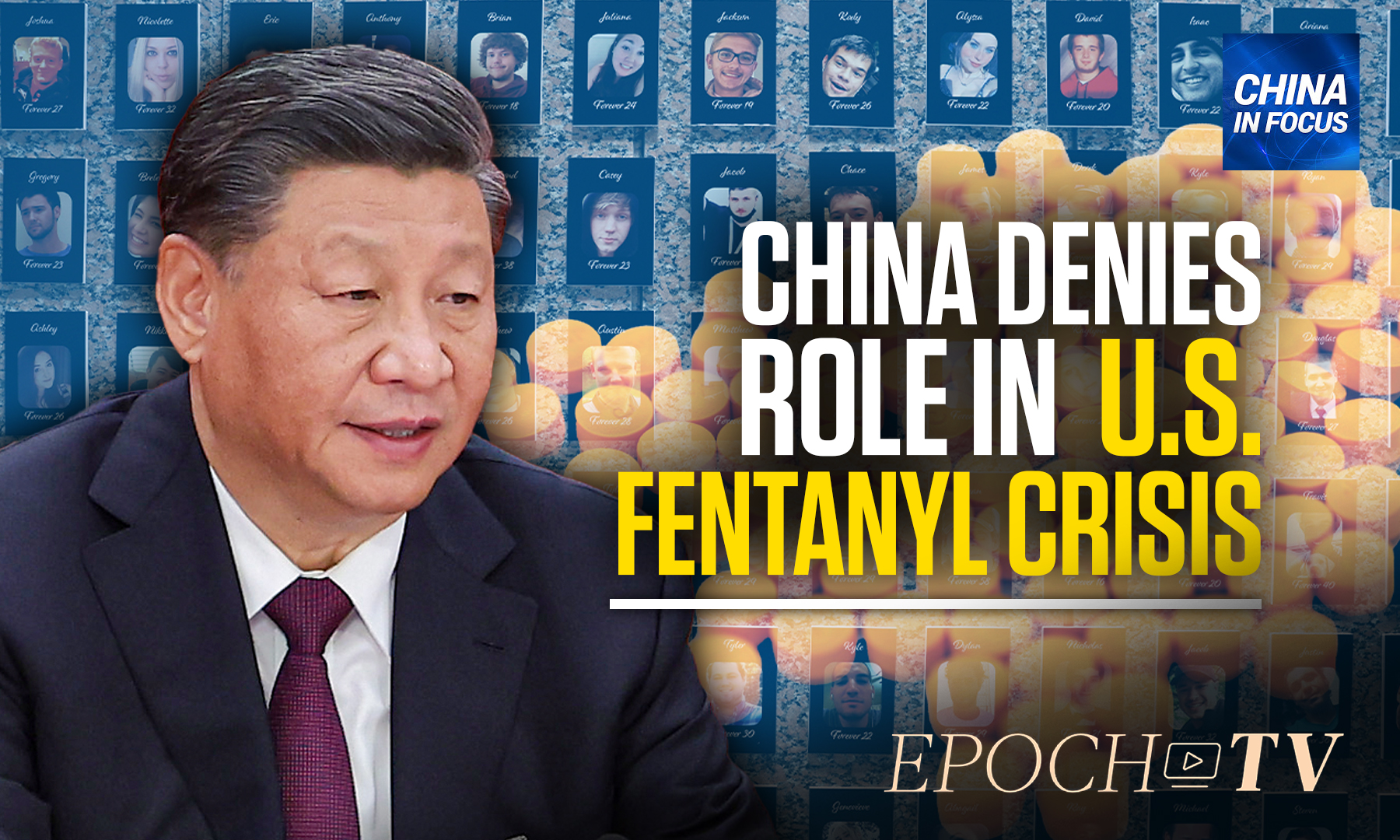How The Fentanyl Crisis Influenced The Trajectory Of U.S.-China Trade Discussions

Table of Contents
The Rise of Fentanyl as a Trade Negotiation Issue
The surge in fentanyl-related deaths in the US, reaching alarming levels, has directly linked to the availability of precursor chemicals from China. These chemicals, essential for fentanyl synthesis, are trafficked across borders, fueling the devastating opioid epidemic. This has dramatically shifted the focus of U.S.-China trade discussions.
- Increased pressure on China to curb the export of fentanyl precursor chemicals: The US government has exerted significant pressure on China to implement stricter controls on the export of these chemicals, arguing that China's lax regulations contribute directly to the crisis.
- Shift in US trade policy focus from traditional economic concerns to national security implications: The fentanyl crisis has transformed the narrative around US-China trade, framing it as a matter of national security rather than solely an economic issue. This has led to a more assertive US approach.
- Growing bipartisan support in the US Congress for stronger actions against China on fentanyl: The severity of the crisis has garnered broad bipartisan support in Congress for stronger measures against China, including potential trade sanctions and diplomatic pressure.
The human cost of the crisis—thousands of preventable deaths annually—has fueled public outrage and influenced political pressure on the government to address the issue forcefully, impacting trade negotiations significantly. The fentanyl crisis has moved beyond a public health concern to become a major political and economic battleground.
China's Response and the Challenges of Enforcement
China officially condemns the illicit production and trafficking of fentanyl and has implemented measures to control the export of precursor chemicals. However, the effectiveness of these measures remains a point of contention.
- Challenges faced by China in controlling the vast and often clandestine chemical industry: China's vast and often unregulated chemical industry poses significant challenges to effective enforcement. Tracking the flow of precursor chemicals is incredibly difficult.
- Concerns about the effectiveness of existing Chinese regulations and enforcement mechanisms: While China has enacted regulations, concerns remain regarding their enforcement, leading to accusations of insufficient action from the US.
- The complexities of international cooperation in tackling transnational drug trafficking: Combating transnational drug trafficking requires international cooperation, which has proven difficult to achieve effectively. Communication gaps and mistrust hinder progress.
Analyzing China's response reveals potential loopholes and difficulties in verifying compliance. The lack of transparency and inconsistent enforcement contribute to mistrust, impacting the broader U.S.-China trade relationship and complicating negotiations. The sheer scale and complexity of the problem create significant hurdles for both countries.
Impact on Existing Trade Agreements and Negotiations
The fentanyl crisis has significantly reshaped the agenda of U.S.-China trade talks, pushing other issues lower on the priority list.
- Inclusion of fentanyl control measures in broader trade agreements and dialogues: Fentanyl control measures are now being explicitly incorporated into broader trade agreements and diplomatic dialogues.
- Increased scrutiny of Chinese companies involved in the production or export of precursor chemicals: Chinese companies involved in the production or export of precursor chemicals are facing increased scrutiny and potential sanctions.
- Potential for trade sanctions or tariffs related to fentanyl trafficking: The US has considered and implemented trade sanctions and tariffs as a lever to pressure China to strengthen its regulatory actions.
The fentanyl crisis has demonstrably impacted ongoing trade negotiations, with discussions frequently sidetracked to address this critical issue. Future agreements are likely to incorporate explicit provisions related to fentanyl control, significantly altering the scope and nature of these negotiations.
Future Implications for U.S.-China Relations
The long-term implications of the fentanyl crisis on the broader U.S.-China relationship are significant and uncertain.
- Increased potential for conflict and tension between the two nations: The crisis has the potential to exacerbate existing tensions and create new points of conflict between the two nations.
- Need for enhanced international cooperation and intelligence sharing to combat fentanyl trafficking: Effective solutions demand greater international cooperation, improved intelligence sharing, and a coordinated global effort to disrupt fentanyl trafficking networks.
- Long-term effects on the economic and political landscape of the US-China relationship: The crisis's long-term impact on the economic and political landscape remains unclear, but it is likely to significantly shape the future relationship between the two countries.
The ongoing fentanyl crisis is a major factor shaping the future trajectory of U.S.-China relations. The crisis underscores the need for a more comprehensive and collaborative approach to global drug control, impacting both trade and broader diplomatic interactions.
Conclusion
The fentanyl crisis has undeniably reshaped the landscape of U.S.-China trade discussions, transforming it from a primarily economic dialogue to one heavily infused with national security concerns. Addressing the flow of fentanyl precursor chemicals from China requires a multifaceted approach involving strengthened international cooperation, enhanced enforcement measures, and a commitment from both nations to prioritize public health. Failure to effectively tackle this crisis will continue to cast a long shadow over the already complex relationship between the U.S. and China, impacting future trade negotiations and the overall bilateral partnership. Continued attention to the impact of the Fentanyl Crisis and US-China Trade is crucial for finding effective solutions. We must demand increased transparency and accountability to mitigate this crisis and safeguard global health.

Featured Posts
-
 The High Cost Of Childcare One Mans Expensive Experience With Babysitters And Daycare
May 09, 2025
The High Cost Of Childcare One Mans Expensive Experience With Babysitters And Daycare
May 09, 2025 -
 Alshmrany Yuelq Ela Mfawdat Jysws Me Flamnghw
May 09, 2025
Alshmrany Yuelq Ela Mfawdat Jysws Me Flamnghw
May 09, 2025 -
 Addressing Accessibility Concerns For Wheelchair Users On The Elizabeth Line
May 09, 2025
Addressing Accessibility Concerns For Wheelchair Users On The Elizabeth Line
May 09, 2025 -
 Where Is Indias First Astronaut Rakesh Sharma Now
May 09, 2025
Where Is Indias First Astronaut Rakesh Sharma Now
May 09, 2025 -
 Trump Names Pirro Dcs Top Prosecutor
May 09, 2025
Trump Names Pirro Dcs Top Prosecutor
May 09, 2025
